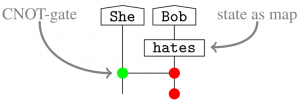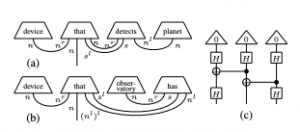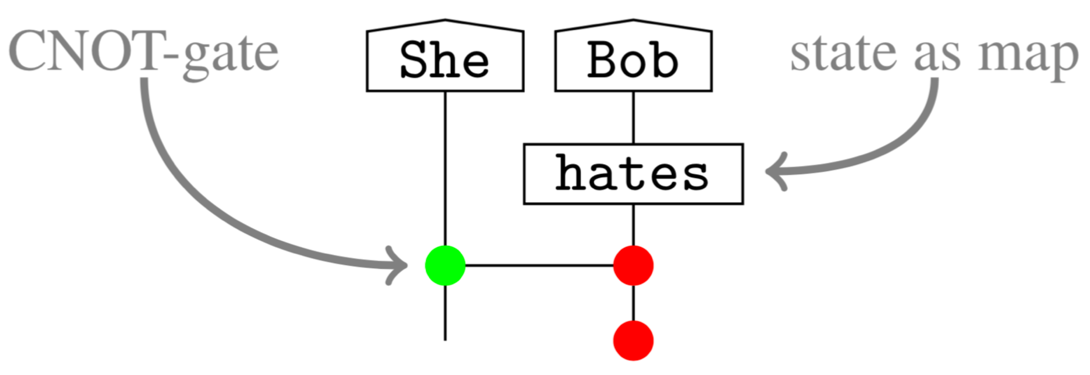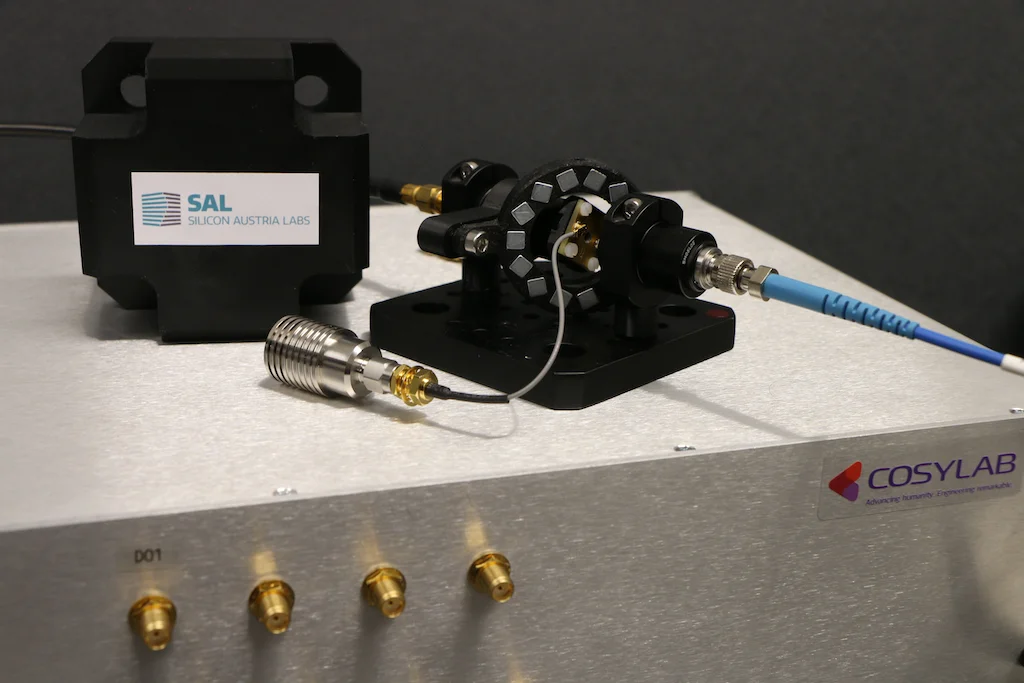
A team of Cambridge Quantum Computing (CQC) researchers report that they have taken another step toward using quantum computers to create meaning aware computers using natural language processing — or NLP — an advance that could lead to significant improvements in a range of technologies, including voice assistants, like Siri and Alexa; telemedicine agents and sentiment analysis.
In a study, the team demonstrated the largest ever experimental implementation of Natural Language Processing (NLP) tasks on a quantum computer. The results are published on the online pre-print repository arxiv (available here).
According to a CQC statement, the paper presents the first “medium-scale” implementation of common NLP tasks. Completed on an IBM quantum computer, the experiment, which instantiated sentences as parameterized quantum circuits, embeds word meanings as quantum states that are “entangled” according to the grammatical structure of the sentence.
 The paper builds on prior proof-of-concept work (see here for the previous experiment) and, significantly, achieves convergence for the far larger datasets that are employed here. One of the objectives of the CQC team is to describe Quantum Natural Language Processing (QNLP) and their results in a way that is accessible to NLP researchers and practitioners thus paving the way for the NLP community to engage with a quantum encoding of language processing, according to the statement.
The paper builds on prior proof-of-concept work (see here for the previous experiment) and, significantly, achieves convergence for the far larger datasets that are employed here. One of the objectives of the CQC team is to describe Quantum Natural Language Processing (QNLP) and their results in a way that is accessible to NLP researchers and practitioners thus paving the way for the NLP community to engage with a quantum encoding of language processing, according to the statement.

“We are working on an immensely ambitious project at CQC that is aimed at utilizing quantum computers, as they scale, to move beyond expensive black-box mechanisms for NLP to a paradigm where we become more effective, more accurate and more scalable in an area of computer science that epitomizes artificial intelligence.”
Bob Coecke, CQC’s Chief Scientist and also the Head of CQC’s QNLP project, said, “We are working on an immensely ambitious project at CQC that is aimed at utilizing quantum computers, as they scale, to move beyond expensive black-box mechanisms for NLP to a paradigm where we become more effective, more accurate and more scalable in an area of computer science that epitomizes artificial intelligence. Having made considerable progress already on our ‘quantum-native’ brand of compositional NLP, we are now moving beyond our initial research and working on applications that can be developed in synch with timelines provided by quantum computing hardware companies such as IBM, Honeywell, Google and others.”
He added, “Equally, at a time when quantum computing is becoming a topic of general interest it is imperative that those of us who are working within this sector provide results that are verifiable. Our record of publication at CQC strives at all times to meet these exacting standards – we are science led and enterprise driven.”
In the paper, the team said that the experiment was not an attempt to achieve quantum advantage. Quantum advantage is a term that describes quantum computers that can outperform classical computers at a computational task.
However, the researchers does suggest there are several paths forward to improve the QNLP performance on currently available quantum computers, which could lead to future investigations for this team of researchers, as well as others in the NLP and QNLP research communities.
The study is titled “QNLP in Practice: Running Compositional Models of Meaning on a Quantum Computer.”
If you found this article to be informative, you can explore more current quantum news here, exclusives, interviews, and podcasts.















.jpg)